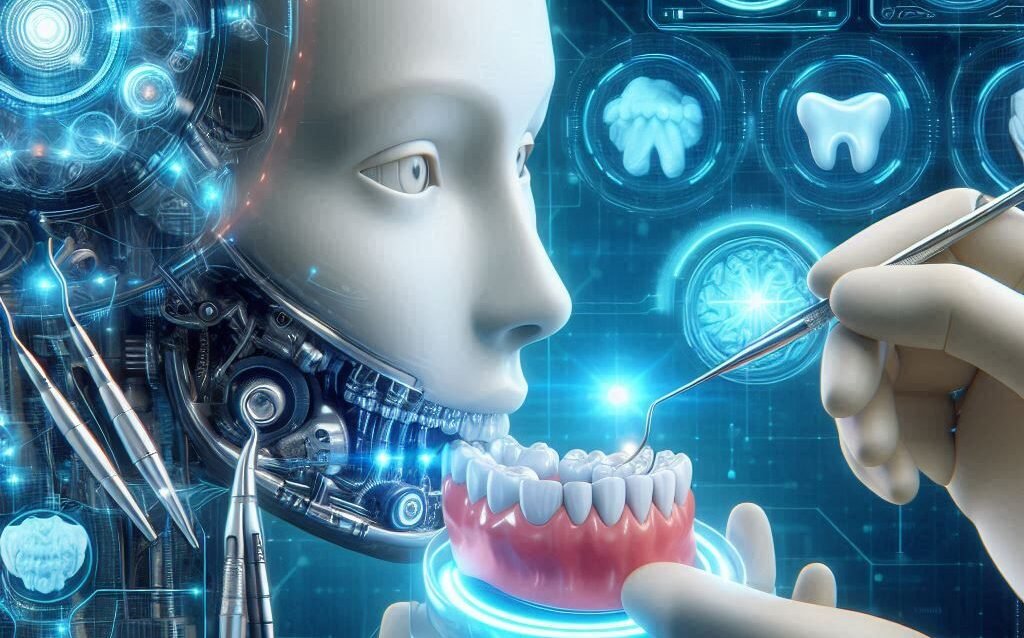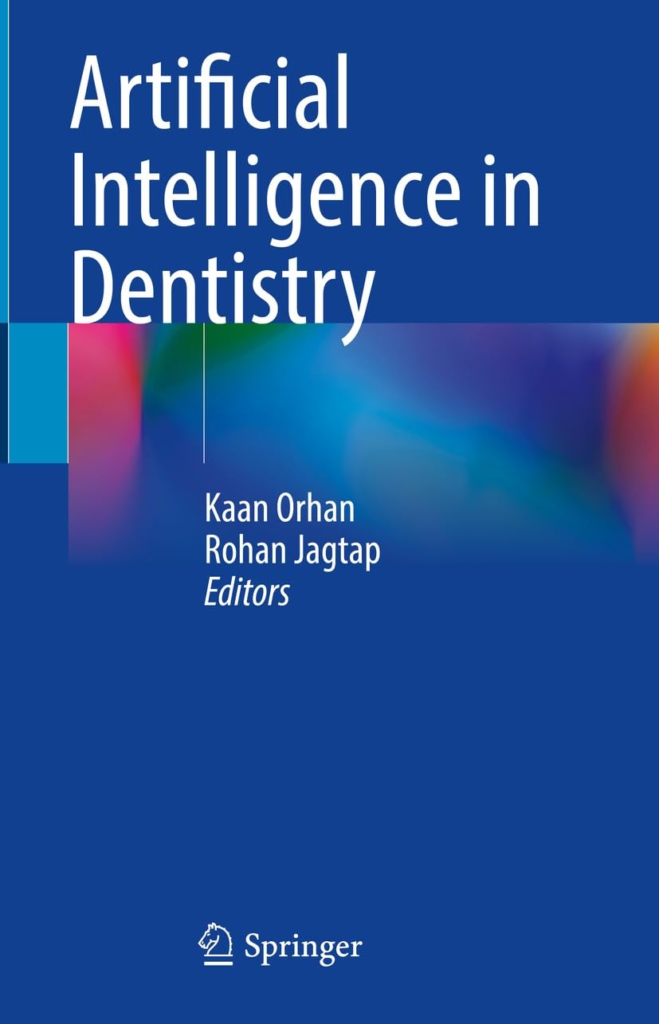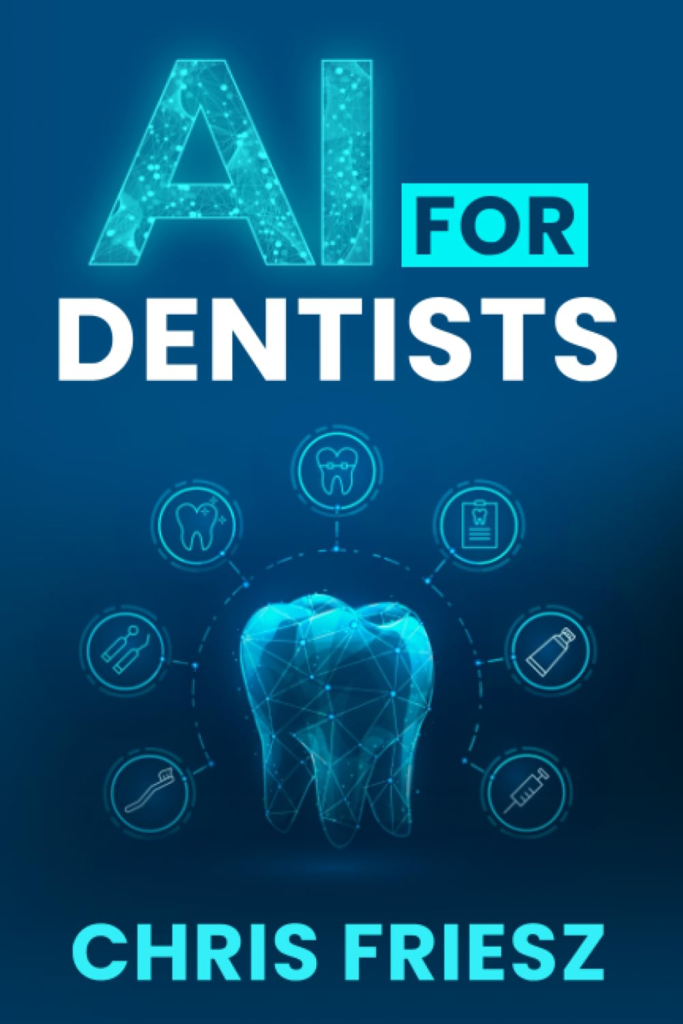Introduction to Artificial Intelligence in Dentistry
Artificial Intelligence (AI) has emerged as a significant technological advancement across various industries, revolutionizing the way data is processed and decisions are made. In dentistry, AI represents a burgeoning field that shows great promise in enhancing patient care and operational efficiency. The evolution of AI technology, which has its roots in early computing and data analytics, has reached a point where it can analyze intricate datasets, recognize patterns, and even predict outcomes, thus making its application particularly pertinent in dental practices.
The integration of AI into dentistry is not merely an experimental concept; it has begun to reshape how dental professionals approach diagnosis, treatment planning, and patient management. From AI-driven diagnostic tools that aid in the early detection of oral diseases to software that optimizes scheduling and resource allocation, AI is proving to be an invaluable asset. In a field where precision and accuracy are paramount, the ability of AI to process large quantities of data swiftly can assist dentists in making more informed and timely decisions.
Moreover, the increasing demand for efficient and effective dental care highlights the necessity for AI solutions in modern dentistry. As the population continues to grow and the prevalence of dental diseases remains significant, traditional methodologies may no longer suffice. AI technology provides an innovative pathway to address these challenges, offering enhanced diagnostic capabilities and personalized treatment options. By embracing AI, dental practices can not only improve patient outcomes but also streamline their operations, thereby ensuring a higher level of care and satisfaction.
Ultimately, the urgency for the adoption of AI in dentistry is underscored by the potential benefits that this technology can deliver. As it continues to gain traction within the dental community, AI stands to redefine the practices and standards of care within the field.
(Purchase today by clicking o the image)
Key Applications of AI in Dental Practices
Artificial Intelligence (AI) is revolutionizing the field of dentistry with its numerous applications that enhance clinical outcomes and patient experiences. One of the most prominent uses of AI in dental practices is in diagnostic tools. These tools leverage machine learning algorithms to analyze dental images, assisting dental professionals in identifying issues such as cavities, gum diseases, or other abnormalities with heightened accuracy. The ability of AI to learn from vast datasets allows it to recognize patterns that may be overlooked by the human eye, consequently improving diagnostic precision and aiding in timely interventions.
Another significant application is in predictive analytics for patient care. AI systems can utilize patient data to forecast future treatment needs and potential health risks. By analyzing a patient’s historical data, AI can assist practitioners in determining the likelihood of developing dental conditions, thus enabling proactive measures. This predictive capability supports more personalized care plans, ensuring that interventions are tailored to individual patient requirements.
Furthermore, AI plays a crucial role in treatment planning. Advanced algorithms can assess a patient’s unique dental structure and predict the outcomes of various treatment options. For instance, AI software can simulate outcomes for orthodontic treatments, providing visual representations that help both dentists and patients make informed decisions. This technology facilitates collaboration between patients and dental professionals, leading to a more informed consent process.
Lastly, AI significantly enhances patient management systems within dental practices. Automation tools powered by AI streamline administrative tasks such as appointment scheduling, billing, and patient follow-up. These efficiencies allow dental staff to focus more on patient care rather than administrative duties, ultimately leading to improved patient satisfaction and operational effectiveness. Examples of AI tools currently utilized in these settings include chatbots for patient inquiries and intelligent scheduling systems that optimize appointment times.
Benefits of AI Integration in Dentistry
The integration of Artificial Intelligence (AI) into dentistry presents a multitude of benefits that enhance both the operational efficiency of dental practices and the experiences of patients. One significant advantage is the improvement in efficiency; AI algorithms can streamline administrative tasks such as scheduling, billing, and patient records management. By automating these processes, dental professionals can focus more on patient care rather than routine tasks, leading to a more productive work environment.
Cost savings also emerge as a notable benefit of AI integration. By utilizing AI-driven solutions, dental practices can reduce overhead costs associated with manual processes. For instance, AI can assist in predictive analytics to forecast patient needs, which allows practices to optimize their resource allocation, ultimately leading to more sustainable financial management.
Enhancing patient outcomes is another critical area where AI makes a difference. With the ability to assess large volumes of data quickly, AI systems provide dental professionals with insights that facilitate more accurate diagnoses and treatment plans. For instance, machine learning models can analyze past treatment results to recommend personalized dental plans tailored to individual patient needs, ensuring that interventions are effective and targeted.
Moreover, employing AI technology significantly helps in reducing human error. Tools powered by AI can assist clinicians in identifying potential issues that might be overlooked, such as cavities or gum disease in their early stages. Alongside this, AI solutions can contribute to increasing productivity by assisting dental professionals in various procedures, such as imaging interpretation and risk assessment, thus allowing for quicker and more reliable decision-making.
Testimonials from dental practitioners who have adopted AI tools highlight their positive experiences, showcasing improvements in workflow and patient satisfaction. Many practitioners report that the integration of AI technologies has not only streamlined operations but also fostered a more engaging and efficient clinic atmosphere.
Challenges and Future of AI in Dentistry
The integration of artificial intelligence (AI) in the dental field presents numerous challenges that must be navigated to ensure successful implementation. One significant hurdle is the resistance to change exhibited by some dental practitioners. Many professionals have grown accustomed to traditional methods and may view AI with skepticism, leading to reluctance in adopting these advanced technologies. This resistance can be further compounded by misconceptions regarding the role of AI, which some practitioners may perceive as a threat to their practice rather than a tool for enhancement.
Another critical challenge facing the adoption of AI in dentistry is the concern surrounding data privacy. As dental practices increasingly rely on AI solutions that require access to patient data, ensuring the protection of sensitive information becomes paramount. Compliance with regulations such as HIPAA in the United States is essential, as any breaches can not only jeopardize patient trust but also result in serious legal consequences for dental practices.
Adequate training and education for dental professionals are crucial for the effective implementation of AI technologies. Many practitioners may lack familiarity with the operational aspects of AI systems, hindering their ability to utilize these tools to their full potential. Therefore, it is imperative for dental education programs and current practices to prioritize training in AI technology and its applications. As advancements in AI continue to evolve, ongoing professional development will become increasingly important.
The future of AI in dentistry appears promising, with significant advancements anticipated in areas such as diagnostics, treatment planning, and patient management. Trends suggest a growing inclination towards personalized patient care, driven by AI’s ability to analyze large datasets for tailored treatment options. Dental practices that stay informed about these technologies and are prepared to adapt will be well-positioned to thrive in this rapidly evolving landscape, ultimately enhancing patient outcomes.
(Purchase today by clicking on the image)






